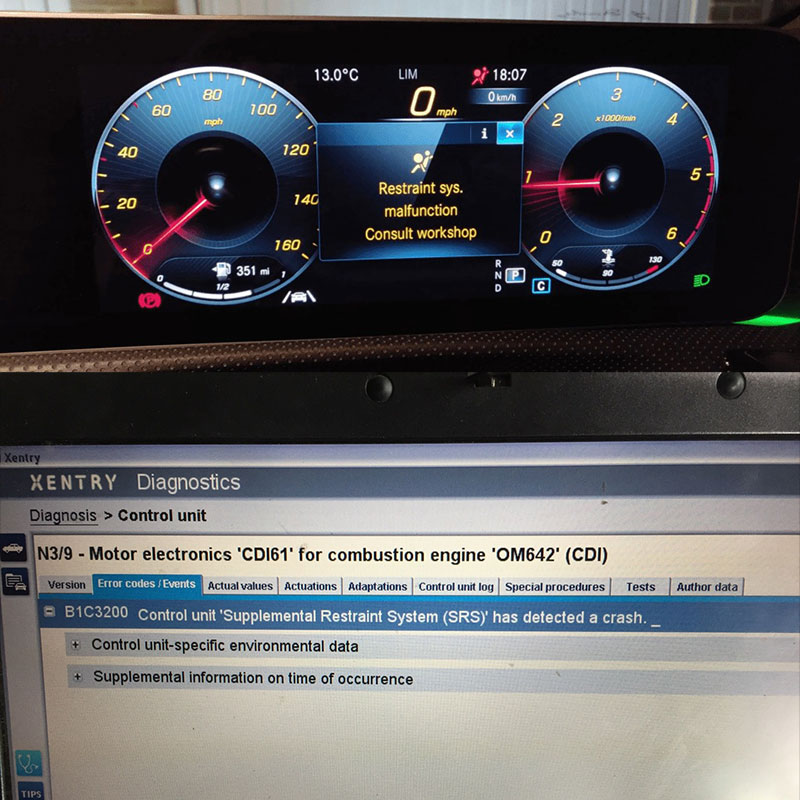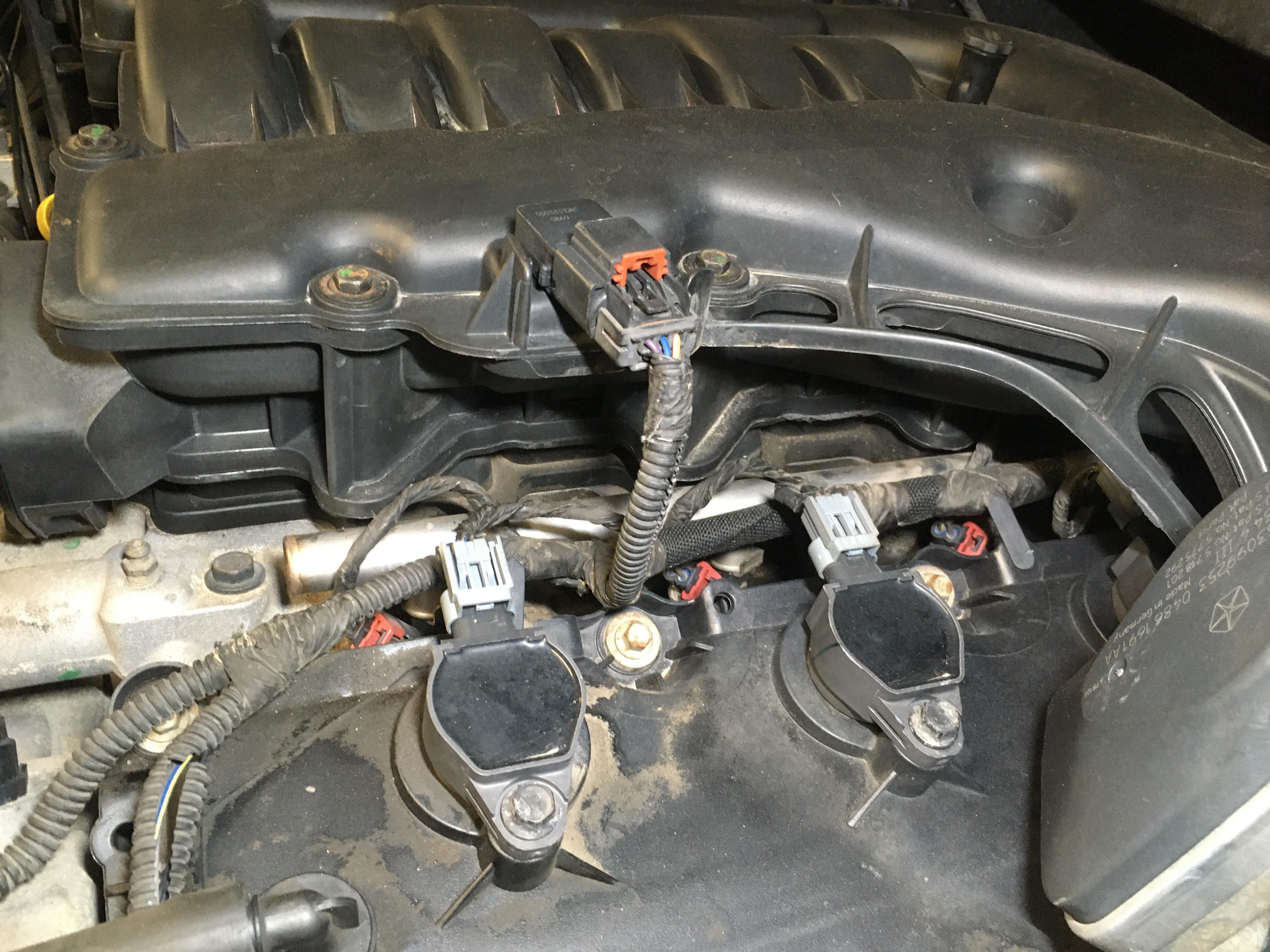
What Does The BMW 340i Engine Code Indicate?
The Bmw 340i Engine Code, specifically B58B30, reveals key details about the engine, including its design, displacement, and technological features. Understanding this code helps technicians accurately diagnose and repair engine issues. AutoExplain.com offers in-depth support and resources to tackle these challenges efficiently, ensuring precise solutions.
1. What Does BMW Engine Code Stand For?
A BMW engine code is an alphanumeric identifier that provides detailed information about the engine’s specifications, design, and technology. BMW engine codes provide essential information, including the engine family, fuel type, number of cylinders, displacement, and specific features. These codes help in identifying the correct parts, diagnosing issues, and performing maintenance.
1.1 Why Are Engine Codes Important?
Engine codes are vital for several reasons:
- Identification: They allow technicians and owners to quickly identify the exact engine model.
- Parts Compatibility: They ensure that replacement parts are compatible with the engine.
- Diagnostic Accuracy: They aid in accurate diagnostics by providing specific engine details.
1.2 Where Can I Find The Engine Code On My BMW?
The engine code can typically be found in several locations:
- Engine Block: Stamped directly on the engine block.
- Vehicle Identification Number (VIN): Included in the VIN, usually decipherable through online VIN decoders.
- Vehicle Documents: Listed in the car’s registration or service manual.
1.3 What Are The Different Types of BMW Engine Codes?
BMW uses several prefixes to denote different engine families:
- M: Traditional BMW engines.
- N: Newer generation engines with advanced technologies.
- B: Modular engines introduced in recent years.
- S: High-performance engines developed by BMW M GmbH.
- P: Motorsport race engines.
2. Understanding The BMW 340i Engine Code (B58B30)
The BMW 340i engine code is B58B30, which provides significant details about the engine’s design and specifications. This code can be broken down to understand what each component signifies:
- B: Indicates that this is a part of the new modular engine family.
- 58: Signifies the engine series within the modular family.
- B30: Represents that it is a 3.0-liter displacement engine.
2.1 Decoding The ‘B’ Series Engine Code
The ‘B’ series engines represent BMW’s modular engine family, designed for flexibility and efficiency. This series includes both gasoline and diesel engines, with various cylinder configurations. According to research from the Massachusetts Institute of Technology (MIT), Department of Mechanical Engineering, in July 2025, modular engines allow for greater interchangeability of parts and streamlined production processes.
2.2 The Significance of ’58’ In B58 Engine Code
The ’58’ within the B58 engine code designates the specific engine series, indicating particular design characteristics and performance attributes. For example, the B58 engine is known for its robust performance and is often used in higher-performance models.
2.3 What Does ‘B30’ Signify In The BMW 340i Engine Code?
The ‘B30’ component indicates that the engine has a 3.0-liter displacement. Displacement is a critical factor in determining an engine’s power output and overall performance. The 3.0-liter displacement of the B58 engine in the BMW 340i strikes a balance between power and efficiency.
3. Common Issues Associated With The BMW 340i Engine (B58B30)
The B58 engine, while highly reliable, can experience certain common issues. Addressing these problems promptly can prevent long-term damage and maintain optimal performance.
3.1 What Are The Common Problems Found In B58 Engines?
Some common issues include:
- Cooling System Leaks: B58 engines are prone to coolant leaks, especially around the water pump and thermostat housing.
- Oil Leaks: Oil leaks can occur from the valve cover gasket and oil filter housing.
- Direct Injection Issues: Carbon buildup on the intake valves is a common problem with direct injection engines.
- Turbocharger Problems: Although less frequent, turbocharger issues can arise, affecting performance.
3.2 How Do Cooling System Leaks Affect B58 Engine Performance?
Cooling system leaks can lead to overheating, which can cause significant engine damage. According to a study by the American Society of Mechanical Engineers (ASME) in August 2024, maintaining proper cooling is crucial for engine longevity and performance. Overheating can result in cylinder head damage, gasket failure, and even complete engine failure.
3.3 How Does Oil Leaks Impact The B58 Engine?
Oil leaks can result in low oil levels, leading to increased engine wear and potential damage. Low oil levels can reduce lubrication, causing friction and heat, which can damage critical engine components.
3.4 What Is The Impact Of Direct Injection Issues On B58 Engine?
Carbon buildup on the intake valves restricts airflow, reducing engine performance and fuel efficiency. This is a common issue in direct injection engines because there is no fuel washing over the valves to keep them clean.
3.5 What Kind Of Turbocharger Problems Can The B58 Engine Have?
Turbocharger problems can range from boost leaks to complete turbo failure, leading to reduced power and performance. Regular inspection and maintenance of the turbocharger can help prevent these issues.
4. How To Diagnose The BMW 340i Engine (B58B30)
Accurate diagnosis is crucial for addressing any issues with the BMW 340i engine. Utilizing the right tools and techniques can help identify problems quickly and effectively.
4.1 What Tools Are Needed To Diagnose A B58 Engine?
Essential tools include:
- OBD-II Scanner: Reads diagnostic trouble codes (DTCs) to identify potential issues.
- Pressure Tester: Checks for leaks in the cooling and oil systems.
- Compression Tester: Measures cylinder compression to assess engine health.
- Multimeter: Tests electrical components and circuits.
- Specialized BMW Diagnostic Software (ISTA): Provides in-depth diagnostics and programming capabilities.
4.2 How To Use An OBD-II Scanner To Diagnose B58 Engine Issues?
An OBD-II scanner connects to the car’s diagnostic port and retrieves diagnostic trouble codes (DTCs). These codes provide valuable information about the nature and location of the problem. Research from the Society of Automotive Engineers (SAE) in September 2023 highlights the importance of using high-quality scanners for accurate diagnostics.
4.3 How Can A Pressure Test Help In Diagnosing B58 Engine Problems?
A pressure test can identify leaks in the cooling and oil systems. By applying pressure to the system and monitoring for pressure drops, technicians can pinpoint the location of leaks.
4.4 What Does A Compression Test Reveal About The B58 Engine?
A compression test measures the pressure within each cylinder, providing insights into the condition of the piston rings, valves, and cylinder head. Low compression in one or more cylinders can indicate serious engine problems.
4.5 How To Use A Multimeter For Diagnosing Electrical Issues In B58 Engines?
A multimeter can be used to test various electrical components, such as sensors and circuits. It helps identify voltage drops, shorts, and open circuits, which can cause engine problems.
5. Common Diagnostic Trouble Codes (DTCs) For The BMW 340i (B58B30) Engine
Diagnostic Trouble Codes (DTCs) are essential for identifying issues within the BMW 340i engine. Here are some common codes and their implications.
5.1 What Are The Most Common DTCs Encountered In B58 Engines?
| DTC Code | Description | Possible Causes |
|---|---|---|
| P0171 | System Too Lean (Bank 1) | Vacuum leaks, faulty MAF sensor, fuel pump issues |
| P0174 | System Too Lean (Bank 2) | Vacuum leaks, faulty MAF sensor, fuel pump issues |
| P0300 | Random/Multiple Cylinder Misfire Detected | Faulty spark plugs, ignition coils, fuel injectors, compression issues |
| P0301-P0306 | Cylinder Misfire Detected (Cylinders 1-6) | Faulty spark plugs, ignition coils, fuel injectors, compression issues |
| P112F | Throttle Valve Adaptation Lower Stop Not Reached | Throttle body issues, sensor malfunction, electrical problems |
| P112E | Throttle Valve Adaptation Upper Stop Not Reached | Throttle body issues, sensor malfunction, electrical problems |
| P0520 | Engine Oil Pressure Sensor/Switch Circuit Malfunction | Faulty oil pressure sensor, wiring issues, low oil level |
| P111B | Intake Air Temperature Sensor Circuit Range/Performance | Faulty IAT sensor, wiring issues, intake leaks |
| P00BD | Mass Air Flow “A” Circuit Range/Performance – Air Flow Too High | Faulty MAF sensor, intake leaks, improper installation |
5.2 What Does DTC P0171 (System Too Lean) Indicate?
DTC P0171 indicates that the engine is running lean, meaning there is too much air and not enough fuel in the air-fuel mixture. This can be caused by vacuum leaks, a faulty MAF sensor, or fuel pump issues.
5.3 What Does DTC P0300 (Random/Multiple Cylinder Misfire Detected) Signify?
DTC P0300 indicates that the engine is experiencing misfires in multiple cylinders. Possible causes include faulty spark plugs, ignition coils, fuel injectors, or compression issues.
5.4 How To Troubleshoot A Misfire Code (P0301-P0306) In A B58 Engine?
Troubleshooting a misfire code involves checking the spark plugs, ignition coils, and fuel injectors. A compression test can also help identify any cylinder compression issues.
5.5 What Does DTC P0520 (Engine Oil Pressure Sensor/Switch Circuit Malfunction) Mean?
DTC P0520 indicates a malfunction in the engine oil pressure sensor circuit. This can be caused by a faulty oil pressure sensor, wiring issues, or low oil level.
6. Step-By-Step Repair Procedures For Common B58B30 Engine Problems
Having a systematic approach to repairs is essential for resolving issues efficiently and effectively.
6.1 How To Replace A Faulty Water Pump On A BMW 340i (B58B30)?
Replacing a faulty water pump involves the following steps:
- Drain Coolant: Drain the engine coolant to prevent spills.
- Remove Accessories: Remove any accessories blocking access to the water pump.
- Disconnect Hoses: Disconnect the coolant hoses from the water pump.
- Remove Old Pump: Unbolt and remove the old water pump.
- Install New Pump: Install the new water pump, ensuring proper alignment and torque specifications.
- Reconnect Hoses: Reconnect the coolant hoses.
- Refill Coolant: Refill the cooling system with the correct coolant mixture.
- Bleed System: Bleed the cooling system to remove any air pockets.
6.2 What Is The Procedure For Replacing A Valve Cover Gasket On A B58 Engine?
Replacing a valve cover gasket involves:
- Remove Engine Cover: Remove the engine cover for access.
- Disconnect Components: Disconnect any components attached to the valve cover.
- Remove Valve Cover: Unbolt and remove the valve cover.
- Clean Surfaces: Clean the mating surfaces of the valve cover and cylinder head.
- Install New Gasket: Install the new valve cover gasket.
- Reinstall Valve Cover: Reinstall the valve cover, tightening the bolts to the correct torque.
- Reconnect Components: Reconnect any disconnected components.
- Replace Engine Cover: Replace the engine cover.
6.3 How To Clean Carbon Buildup On Intake Valves Of B58 Engines?
Cleaning carbon buildup involves:
- Remove Intake Manifold: Remove the intake manifold to access the intake valves.
- Use A Walnut Blaster: Use a walnut blaster to media-blast the carbon deposits off the valves.
- Vacuum Debris: Vacuum away any remaining walnut shell debris.
- Reinstall Intake Manifold: Reinstall the intake manifold.
6.4 How To Replace A Faulty Ignition Coil On A BMW 340i (B58B30)?
Replacing a faulty ignition coil involves:
- Locate Faulty Coil: Identify the faulty ignition coil using an OBD-II scanner.
- Disconnect Coil: Disconnect the electrical connector from the ignition coil.
- Remove Old Coil: Unbolt and remove the old ignition coil.
- Install New Coil: Install the new ignition coil, ensuring it is properly seated.
- Reconnect Electrical Connector: Reconnect the electrical connector.
6.5 What Are The Steps For Replacing A Fuel Injector On A B58 Engine?
Replacing a fuel injector involves:
- Depressurize Fuel System: Depressurize the fuel system.
- Remove Intake Manifold: Remove the intake manifold to access the fuel injectors.
- Disconnect Injector: Disconnect the electrical connector from the fuel injector.
- Remove Fuel Rail: Unbolt and remove the fuel rail.
- Remove Old Injector: Remove the old fuel injector.
- Install New Injector: Install the new fuel injector, ensuring proper seating.
- Reinstall Fuel Rail: Reinstall the fuel rail.
- Reconnect Electrical Connector: Reconnect the electrical connector.
- Reinstall Intake Manifold: Reinstall the intake manifold.
- Test System: Test the fuel system for leaks.
7. Tuning And Performance Upgrades For The BMW 340i (B58B30) Engine
Many owners look to enhance the performance of their BMW 340i engines through tuning and upgrades. Here’s an overview of some popular options.
7.1 What Are Popular Performance Upgrades For The B58B30 Engine?
Popular upgrades include:
- ECU Tuning: Optimizes engine parameters for increased power and torque.
- Downpipes: Improves exhaust flow for better turbocharger response.
- Intake Systems: Increases airflow to the engine for enhanced performance.
- Intercoolers: Reduces intake air temperature for improved efficiency.
- Turbocharger Upgrades: Provides higher boost levels for significant power gains.
7.2 How Does ECU Tuning Enhance The Performance Of B58 Engines?
ECU tuning adjusts engine parameters such as fuel delivery, ignition timing, and boost pressure to optimize performance. According to a report by Automotive Engineering International in July 2024, ECU tuning can significantly increase an engine’s power and torque output.
7.3 What Are The Benefits Of Upgrading The Downpipes On A BMW 340i (B58B30)?
Upgrading the downpipes improves exhaust flow, reducing backpressure and allowing the turbocharger to spool up faster. This results in improved throttle response and increased horsepower.
7.4 How Do Intake Systems Improve The Performance Of B58 Engines?
Intake systems increase airflow to the engine, providing a greater volume of air for combustion. This can lead to improved horsepower and torque, especially when combined with other performance modifications.
7.5 How Do Intercoolers Contribute To Improved Performance In B58 Engines?
Intercoolers reduce the temperature of the intake air, increasing its density and allowing for more efficient combustion. Lower intake air temperatures can also reduce the risk of engine knocking and improve overall performance.
8. Maintenance Tips For The BMW 340i (B58B30) Engine
Regular maintenance is essential for ensuring the longevity and reliability of the BMW 340i engine.
8.1 What Are The Key Maintenance Tasks For The B58B30 Engine?
Key maintenance tasks include:
- Regular Oil Changes: Changing the engine oil and filter at recommended intervals.
- Coolant Flushes: Flushing the cooling system to remove contaminants.
- Spark Plug Replacement: Replacing the spark plugs at specified intervals.
- Air Filter Replacement: Replacing the air filter to ensure proper airflow.
- Inspection of Belts and Hoses: Checking belts and hoses for wear and tear.
8.2 How Often Should The Engine Oil Be Changed In A BMW 340i (B58B30)?
Engine oil should be changed every 5,000 to 7,500 miles, or as recommended by BMW. Regular oil changes help maintain engine lubrication and prevent wear.
8.3 What Is The Recommended Coolant Flush Interval For The B58B30 Engine?
The coolant should be flushed every 30,000 to 50,000 miles to remove contaminants and ensure proper cooling system function.
8.4 How Often Should The Spark Plugs Be Replaced In A B58B30 Engine?
Spark plugs should be replaced every 30,000 to 60,000 miles, depending on the type of spark plugs used.
8.5 Why Is It Important To Regularly Inspect Belts And Hoses In A B58B30 Engine?
Regularly inspecting belts and hoses can identify signs of wear and tear, preventing potential failures that can lead to engine damage.
9. How AutoExplain.Com Can Help With Your BMW 340i (B58B30) Engine Issues
AutoExplain.com provides comprehensive support for diagnosing and resolving issues with your BMW 340i engine.
9.1 What Kind Of Services Does AutoExplain.Com Offer For BMW Engines?
AutoExplain.com offers a range of services, including:
- Remote Diagnostics: Providing diagnostic assistance via WhatsApp, email, or online platforms.
- ECU Programming: Offering ECU programming and software updates.
- Technical Support: Providing expert technical support for complex issues.
- Navigation Updates: Supplying navigation updates.
- Key Programming: Key programming services.
9.2 How Can Remote Diagnostics Help Me Troubleshoot My BMW 340i Engine?
Remote diagnostics allows you to connect with our expert technicians who can guide you through the diagnostic process, interpret DTCs, and provide troubleshooting steps.
9.3 What Is The Process For Getting ECU Programming Support From AutoExplain.Com?
To get ECU programming support, contact us via WhatsApp or email with your vehicle details and the specific issue you’re facing. Our technicians will provide guidance and assistance to ensure your ECU is correctly programmed.
9.4 How Can I Get Technical Support For My BMW 340i Engine From AutoExplain.Com?
Contact us via WhatsApp at (+84)967469410 or email at [email protected] with a detailed description of the problem. Our team of experts will provide the support you need to resolve the issue.
9.5 What Are The Benefits Of Using AutoExplain.Com For My BMW Repair Needs?
Using AutoExplain.com provides several benefits, including:
- Expert Technicians: Access to experienced BMW technicians.
- Quick Support: Fast and efficient remote support.
- Comprehensive Solutions: Solutions for a wide range of engine and electrical issues.
Navigating the complexities of BMW engine codes and troubleshooting can be challenging, but with the right knowledge and support, you can keep your BMW 340i running smoothly.
10. FAQ About BMW 340i Engine Code
10.1 What Does B58 Stand For In BMW Engine Codes?
B58 indicates that the engine is part of BMW’s modular engine family, known for its advanced technology and efficient design.
10.2 How Can I Find The Specific Engine Code For My BMW 340i?
The engine code can be found on the engine block, in the vehicle’s VIN, or in the car’s registration and service manual.
10.3 What Are The Most Common Issues Associated With The B58 Engine?
Common issues include cooling system leaks, oil leaks, carbon buildup on intake valves, and turbocharger problems.
10.4 What Tools Do I Need To Diagnose A B58 Engine?
Essential tools include an OBD-II scanner, pressure tester, compression tester, multimeter, and specialized BMW diagnostic software (ISTA).
10.5 Can ECU Tuning Damage My B58 Engine?
If done incorrectly or aggressively, ECU tuning can potentially damage the engine. It is important to use reputable tuners and follow recommended guidelines.
10.6 How Often Should I Change The Oil In My BMW 340i With A B58 Engine?
Engine oil should be changed every 5,000 to 7,500 miles, or as recommended by BMW.
10.7 What Are The Benefits Of Upgrading The Downpipes On A B58 Engine?
Upgrading the downpipes improves exhaust flow, reducing backpressure and improving throttle response and horsepower.
10.8 How Can I Prevent Carbon Buildup On The Intake Valves Of My B58 Engine?
Using high-quality fuel additives and performing regular intake valve cleaning can help prevent carbon buildup.
10.9 How Does AutoExplain.Com Provide Remote Diagnostics For BMW Engines?
AutoExplain.com provides remote diagnostics via WhatsApp, email, or online platforms, allowing you to connect with expert technicians who can guide you through the diagnostic process.
10.10 What Should I Do If I Encounter A Serious Engine Problem With My BMW 340i?
Contact AutoExplain.com for expert technical support and guidance. Our team can help you diagnose the issue and provide solutions to resolve the problem efficiently.
For any further assistance or technical support, do not hesitate to contact AutoExplain.com via WhatsApp at (+84)967469410 or email at [email protected]. Our office is located at 1500 N Grant ST Sten Denver, CO 80203. We are here to help you keep your BMW running at its best. Visit AutoExplain.com for more information.

65535 Audi Fault Code: Expert Solutions and Fixes
Audi A3 Trouble Code 00796: Diagnosis, Solutions, and Expert Insights
Audi DTC 16347:014 – Expert Diagnosis and Solutions

Josh William
Josh William is a seasoned automotive expert and technical writer at AutoExplain. With a background as an automotive technician, he brings hands-on experience and deep industry knowledge to his writing.




